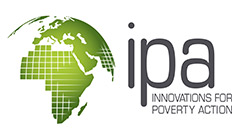Most of the world’s poor live in fragile states, yet rigorous evidence on how to build peace and stability in conflict and crisis-affected contexts is still limited.
- Reducing violence and promoting peace
- Reducing "fragility" (i.e. fostering state capability and institutions of decision-making)
- Preventing, coping with, and recovering from crises (focusing on conflict, but also including non-conflict humanitarian crises such as COVID-19)
Highlights
 Publication
By the year 2030, roughly two thirds of the world’s population living in extreme poverty could be in fragile settings. Innovations for Poverty Action’s Peace... |
 Publication
While young adults in many contexts struggle to develop a positive identity or skills such as self-control, those who grow up in low-income or violent settings may have more at stake and receive... |
 Publication
Through our work with partners in Latin American and the Caribbean (LAC) and globally, IPA has succeeded in finding organizations with innovative solutions for reducing crime and violence, and... |
|
|





